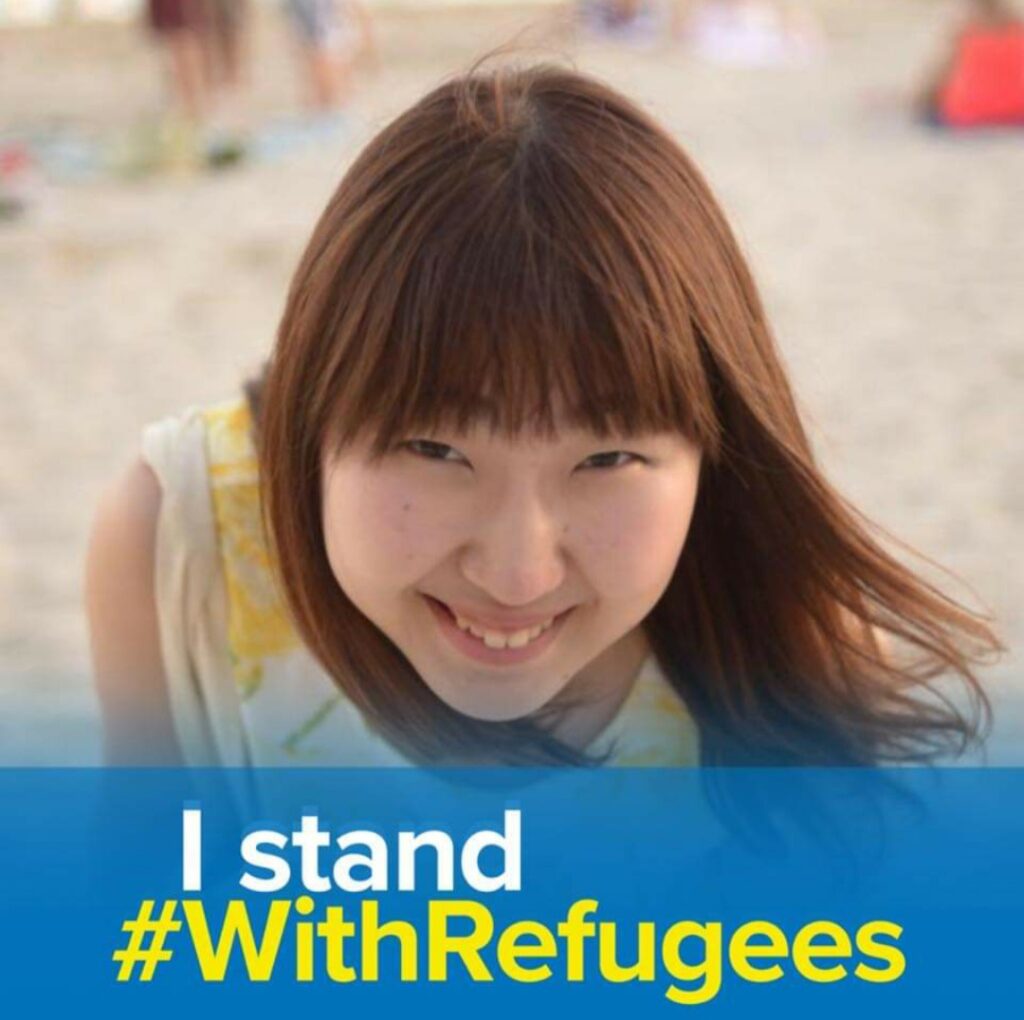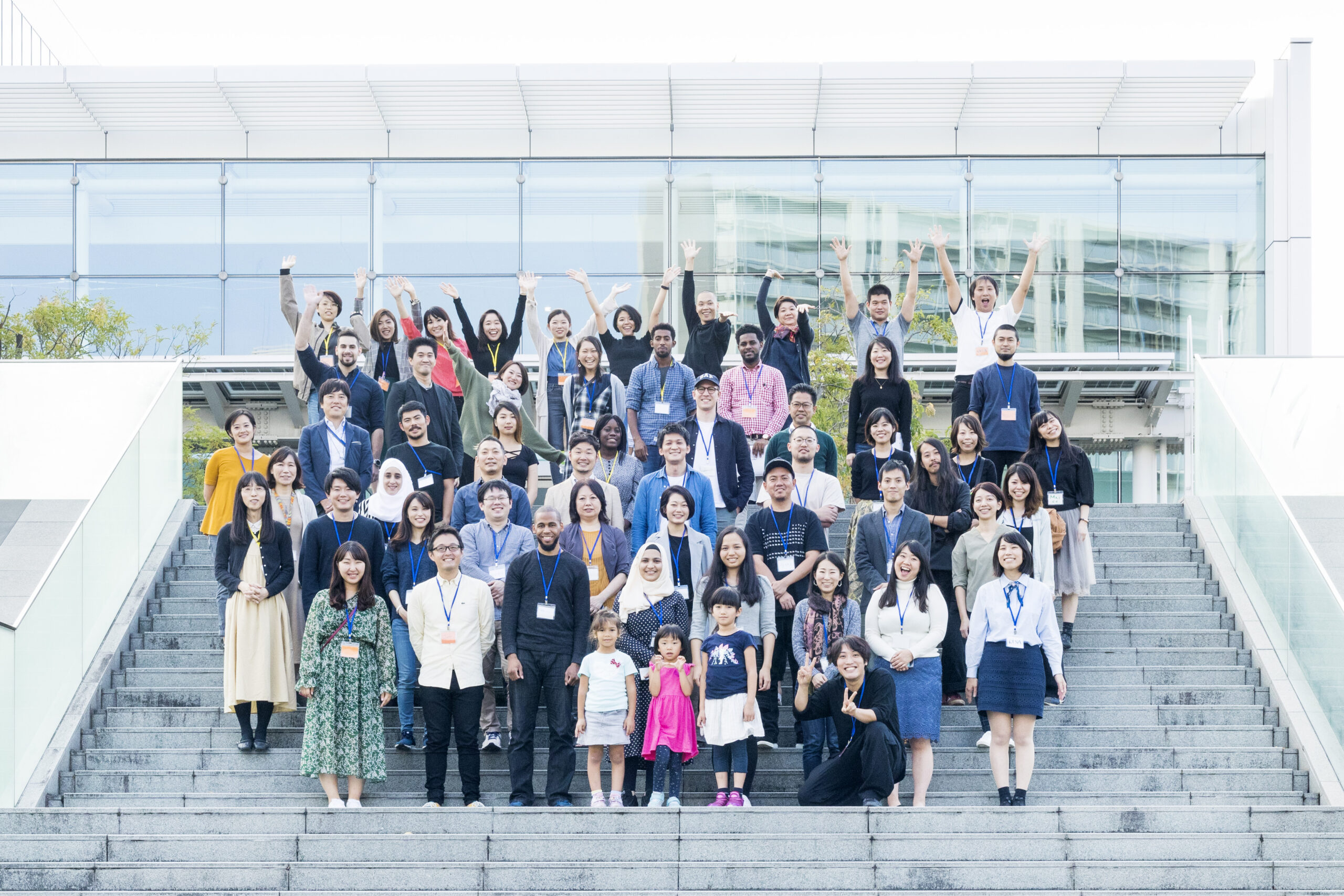Japan is known across the globe for its monoculturism and strong nationalism. While this a major advantage for the development of the nation, it poses a great challenge to the prospects of foreign workers and refugees residing there. However, some nationals do understand the grave situation and are working to bring inclusiveness in the traditional outlook. Ms. Yu Shinagawa has been working from years in order to solve these major issues with systematic changes in the system. After having coordinated in the projects with the “World Bank” and “UNHCR”, she has founded her own company “An-Nahal” for the cause.
Earliest inspiration for the choice of career:

At the early age of 19, while being in the first year of college, Ms. Shinagawa had participated in an international exchange program called “Ship for World Youth” organized by the government of Japan. Around 240 participants within the age group of 18-30 had participated in the program. It included people from 13 different nations who spent 43 days on board together. That experience of interacting with people from different cultures and nationalities, with varied views made her realize the importance of intermixing and globalization. “It was an eye-opening experience for me. It made me realize that the development of leadership would be a key towards creating a better society.”
Why to launch a company for career development?
After having successfully worked as a “talent development consultant” for 6 years, Ms. Shinagawa was well aware of the problems that existed in Japan. One of the major issues was that of managing the international potential which was not getting appropriate exposure in the nation due to the presence of various barriers. This can be estimated from the fact that the number of foreign workers in Japan was 1.4 million in 2018, accounting for 2.23% of total workforce. There are basically two major reasons behind this exclusive trend in the island nation:
The first barrier is the presence of stereotypes and the lack of understanding in the field of hiring and managing the international talents. In October 2019, more than 35 percent of foreign workers in Japan were employed by companies with less than 30 employees.
“The Japanese society is tentatively monocultural. More than 90% of companies of Japan are dominated by nationals in the primary workforce.”
“We don’t have different religions or the understanding of multiple cultures. This also becomes a major barrier for the international people who want to work in japan.” Japan is primarily considered as one of the most monocultural and insulated countries in the world. In 2018, over 188 thousand establishments were operating in the Japanese manufacturing industry out of which only 49.4 thousand businesses employed foreign workers.
Second and the most difficult problem is the Japanese language. “In almost all the cases, Japanese is used as the official work language which further poses a big challenge of language barrier for the foreigners.” According to a survey, unless the language barrier is addressed, other efforts to surge the number of foreign workers will ultimately fail. Providing Japanese language training to foreign workers can be a solution.
Work in present:
“Currently we are focusing on the major problems of language acting as a barrier and that of the lack of understanding by the people.” In a country that claims itself to be there for the nationals, and is, by and large, monolingual and monocultural, it becomes extremely challenging to bring changes in the systematic framework. This was one of the major motives behind starting the company Al-Nahal, that focusses on career development of foreigners and diversity inclusion training for Japanese companies. “We are working to support highly educated individuals looking for better job opportunities in Japan. Our agenda is also to support the Japanese business professionals to be more understanding and ready to work with people from different backgrounds.”
Working with refugees:

While working in a project for refugees, Ms. Shinagawa was responsible for their job assistance. However, being a refugee and getting a job is not such an easy thing in the island nation. “The major problem is the legal assistance.” According to Japan’s Ministry of Justice, the “success” rate for applications of refugees is less than 0.2%, with Japan accepting 20 refugees in 2017 from 11,361 individual cases. As there is the absence of a point-based skilled independent immigration scheme. The ratio of a refugee being employed in a decent job is quite low. This is because of the fact that they are not given official recognition in the country.
“They are mostly labelled as the “asylum seekers”; which means that they have limited work opportunities.”
It may differ in multiple cases, but mostly they have a visa valid for 6 months and this makes it really difficult for them to have a full-time permanent job. “The companies also view them as temporary assets, being well aware of the fact that they can be with them for 1 year at max and thus it won’t be advisable to invest in them in the professional career building ways.” This kind of environment impacts the career prospects of refugees.
Ultimate message for the youth:
“Keep doing what you like; follow your heart. Be what you are and do what you want to.”
“People might tell you to follow a particular career path, but if you think that it’s not the one made for you, explore different options.” Starting from the scratch and progressing gradually with the increase in interest can be helpful in the long run. She believes that people should explore different possibilities and try to find different solutions for overcoming a particular situation. “Try to be more flexible and not to stick on just one solution.” If a person has only one correct notion of a situation, he cannot search for alternative options. In doing so, he will block his prospects of growth.


